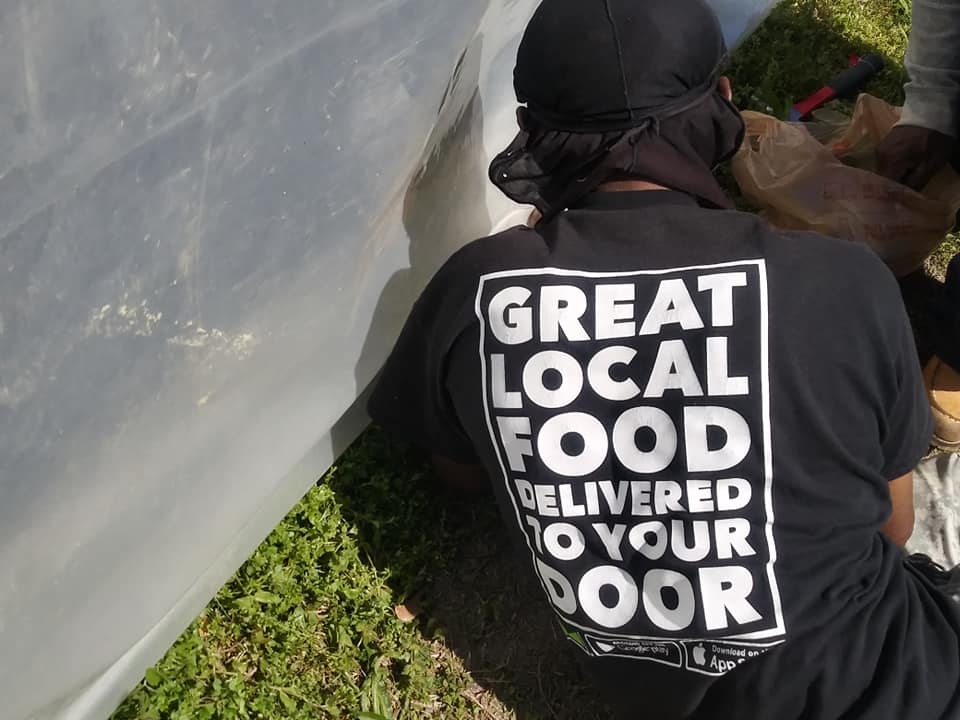Food deserts, areas—often urban—where access to healthy food items is limited, are fundamentally a myth, says agricultural entrepreneur Dan Scott.
“That is a false truth being utilized in gentrification efforts,” said Scott. “Food deserts don’t exist.”
The Augusta native launched the nonprofit Snap Corps in 2017 in part to undermine the perception that underserved urban areas are helpless to lift themselves out of issues of blight and food scarcity associated with the term “food desert.”
Snap Corps specializes in facilitating training and education opportunities in agribusiness. Its name juxtaposes occupational bodies such as “Job Corps” or “Peace Corps” with the Suppositional Nutrition Assistance Program, or SNAP.
Scott draws insight from the fact that many individuals who live in food deserts use electronic benefit transfer, or EBT cards, the system to access SNAP benefits. He compares the cards to an early form of digital currency, through which people in economically disadvantaged areas have a means to not merely stock up their refrigerators, but to cultivate produce and potentially a means to start new occupations and businesses.
“There’s a lot of the states where you can buy seeds and fruit bearing plants [via EBT],” said Scott. “The more I thought about it, I said, ‘Well, why aren’t people being introduced to more green careers? They could purchase the seeds and food-bearing plants in their communities and grow it so that they can themselves be directly connected to addressing the food desert issue.”
Facilitating knowledge and training in this regard is the “number one goal” of Snap Corps, Scott said. Noting that plenty of residents in these neighborhoods aren’t starving, and the circulation of the urban dollar in urban communities, he aims to rebrand Augusta’s “food deserts” as “food oases.”
Snap Corps and its initiatives, like its research and education subsidiary Studio Farmer LLC, are about more than growing food, or even teaching how to do so. Its emphasis is on attaining profitable skills in areas related to agribusiness.
People can address urban decay by becoming growers. But they can also learn about other, finer aspects of farming, and jobs related to them, such as precision agriculture (as opposed to merely rural or urban agriculture).
“You have to grow in a space, and you have to remediate that area to prepare it,” said Scott. “So it’s feasible for growing.”
Snap Corps’ apprenticeship program was created, Scott said, to enable connections to high demand careers.
For National Apprenticeship Week, which is Nov. 14 – 20, Radio Farmer, in cooperation with the U.S. Dept. of Labor, presented programs for certifications in training legal assistants and financial assistants for direct marketing farmers, how to train landscape management technicians, and even how to train direct marketing farmers themselves.
The organization also offers education in conservation practices and how to earn land through apprenticeships.
“Everybody wants to be the savior of people who don’t need saving,” said Scott, underscoring Snap Corps’ mission to foster and encourage self-reliance as well as community-building. “But they are the ones that have the power. They should be telling you, ‘No, we need to we need operations that will back up the money that we already have to spend right now. The apprenticeship allows us to start to build those operations.”
Whether going on to grow food in one’s own yard to sell at a farmers market, or gaining skills to help developers manage land, the idea of the Snap Corps entails empowering locals of regardless of their perceived economic standing to use green knowledge to expand the community’s dollars; an appropriate vision for the Garden City.
“With with the help of a few others who are on the board, we’re expanding and connecting into other businesses now in the community, and we look to continue doing great things,” he said.
Scott encourages those interested in learning more about agribusiness and agricultural apprenticeships send inquiries to snapcorpusa@gmail.com.
Skyler Q. Andrews is a staff reporter covering business for The Augusta Press. Reach him at skyler@theaugustapress.com.











